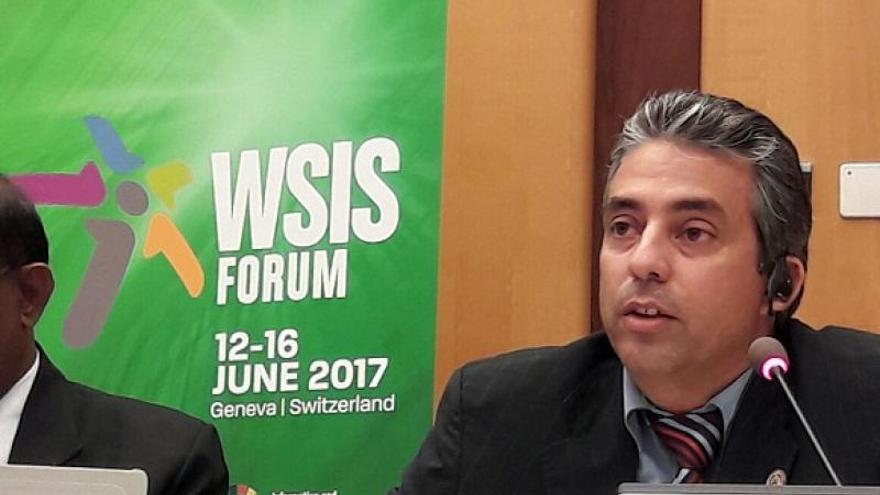
![]() 14ymedio, Havana, 2 January 2017 — The Vice-minister of Communications, Wilfredo González, assured that there is no limitation “from the political point of view” for Cubans accessing the Internet, according to statements published on Tuesday by the official media Cubahoy.
14ymedio, Havana, 2 January 2017 — The Vice-minister of Communications, Wilfredo González, assured that there is no limitation “from the political point of view” for Cubans accessing the Internet, according to statements published on Tuesday by the official media Cubahoy.
Participating in a conversation with the state news outlet in which he spoke about the steps taken in the process of computerization of society during the past year, González highlighted the role played by the Telecommunications Company of Cuba (Etecsa) with regards to “institutional connectivity.”
In relation to the expansion of the number of Wi-Fi zones for Internet connection, the official explained that there are about 500 of these zones throughout the country along with the 650 navigation rooms with fixed terminals installed by Etecsa.
González emphasized that with regard to the increase in the number of Wi-Fi zones, the concept will continue to be “to share, and not to exclude, as an imperative of society, and of the Revolution.”
For the Communications official, the 10,000 home-based internet connections, provided through the Nauta Hogar service, are still “few,” but according to the forecast that number will increase in 2018.
The possibility of accessing the internet from mobile phones was not included in González’s projections for this year, although a few days before the end of the year the president of the state telecommunications monopoly, Mayra Arevich, suggested this possibility during an interview.
In his statements, the vice minister described as a “challenge” the implementation of a policy on cybersecurity. The strategy should aim to “protect the benefits, not only of the Revolution, but also the citizens’ data,” the official said.
As of last November, Etecsa had reimbursed more than 5,300 CUC to customers of its Wi-Fi service who had been victims of theft of their account balances while trying to connect to the service. According to the news agency EFE, in 2015 the head of the anti-fraud department of the state monopoly said that the company did not have a valid security certificate to protect the operations of its users.
The vice-minister also did not mention the innumerable digital sites that have been blocked on the island’s servers, nor did he refer to another type of censorship over content, based on keywords, that the Government applies to messaging by electronic mail or text messages (SMS) between mobile devices.
In 2017, Cuba finished once again among the last five positions of the 65 countries examined by Freedom House in its annual report on Internet freedom.
The Island was awarded 79 negative points (on a scale where 100 represents the worst position), which places the Government of Raul Castro as a serious violator of freedom on the web, behind only China, Ethiopia, Syria and Iran, according to the report of the American NGO.
According to Freedom House, the rate of Internet penetration in Cuba is only 38.8%, despite the growth since 2015 in the number of Wi-Fi zones and the reduction in the tariff from 2 CUC to 1 CUC per hour of navigation (in a country where state salaries rarely exceed 40 CUC per month).
____________________
The 14ymedio team is committed to serious journalism that reflects the reality of deep Cuba. Thank you for joining us on this long road. We invite you to continue supporting us, but this time by becoming a member of 14ymedio. Together we can continue to transform journalism in Cuba.
